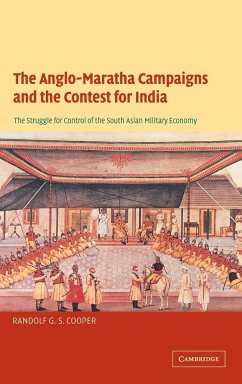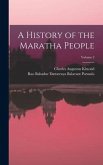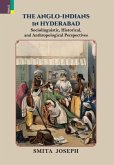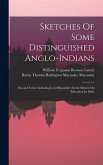Short description/annotation
A history of the last serious indigenous campaign against the formation of the British Raj.
Main description
This is a cross-cultural study of the political economy of war in South Asia. Randolf G. S. Cooper combines an overview of Maratha military culture with a battle-by-battle analysis of the 1803 Anglo-Maratha Campaigns. Building on that foundation he challenges ethnocentric assumptions about British superiority in discipline, drill and technology. He argues that these campaigns, in which Arthur Wellesley served with distinction, represent the military high-water mark of the Marathas who posed the last serious opposition to the formation of the British Raj. Dr Cooper asserts that the real contest for India was never a single decisive battle for the subcontinent. Rather it turned on a complex social and political struggle for control of the South Asian military economy. The author shows that victory in 1803 hinged as much on finance, diplomacy, politics and intelligence as it did on battlefield manoevre and war itself.
Table of contents:
Introduction; 1. Maratha military culture; 2. British perceptions and the road to war in 1803; 3. The Deccan campaign of 1803; 4. The Hindustan campaign of 1803; 5. 'Coming in'; 6. The anatomy of victory; Appendix I: Anglo-South Asian conflict chart; Appendix II: British troop strengths and casualties for the Hindustan and Deccan campaigns 1803; Appendix III: Governor General Wellesley's 'Maratha' proclamation of 1803; Appendix IV: Mercenary pension records; Appendix V: The Marathas' employment of mercenaries in historic perspective; Bibliography.
A history of the last serious indigenous campaign against the formation of the British Raj.
Main description
This is a cross-cultural study of the political economy of war in South Asia. Randolf G. S. Cooper combines an overview of Maratha military culture with a battle-by-battle analysis of the 1803 Anglo-Maratha Campaigns. Building on that foundation he challenges ethnocentric assumptions about British superiority in discipline, drill and technology. He argues that these campaigns, in which Arthur Wellesley served with distinction, represent the military high-water mark of the Marathas who posed the last serious opposition to the formation of the British Raj. Dr Cooper asserts that the real contest for India was never a single decisive battle for the subcontinent. Rather it turned on a complex social and political struggle for control of the South Asian military economy. The author shows that victory in 1803 hinged as much on finance, diplomacy, politics and intelligence as it did on battlefield manoevre and war itself.
Table of contents:
Introduction; 1. Maratha military culture; 2. British perceptions and the road to war in 1803; 3. The Deccan campaign of 1803; 4. The Hindustan campaign of 1803; 5. 'Coming in'; 6. The anatomy of victory; Appendix I: Anglo-South Asian conflict chart; Appendix II: British troop strengths and casualties for the Hindustan and Deccan campaigns 1803; Appendix III: Governor General Wellesley's 'Maratha' proclamation of 1803; Appendix IV: Mercenary pension records; Appendix V: The Marathas' employment of mercenaries in historic perspective; Bibliography.







![Extracts and Documents Relating to Maratha History [microform] .. Extracts and Documents Relating to Maratha History [microform] ..](https://bilder.buecher.de/produkte/65/65501/65501448m.jpg)

